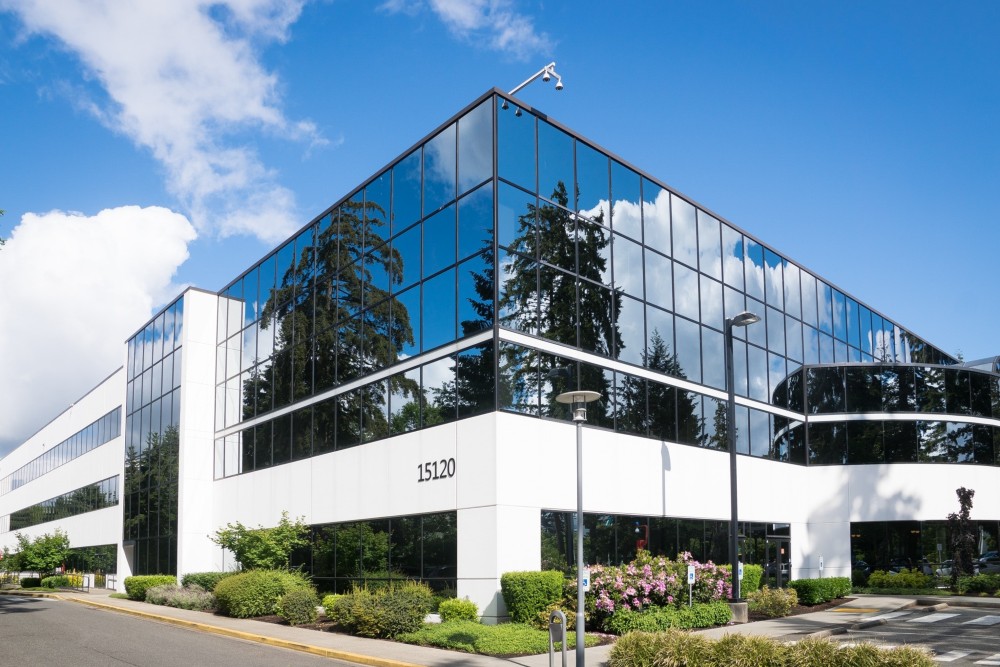Brief Overview
Investing in commercial real estate is an attractive choice for people who are looking to make higher returns, however it’s crucial to note that this is a long-term investment that requires a certain amount of funds available up-front. If you don’t have a large amount of capital, there are various options to choose from, without purchasing the physical property.
Key Points
Commercial real estate investing is attractive to many investors because they can generate higher returns on their investments, and there are various tax benefits associated with investing in different property types or asset classes.
What is commercial real estate investing? It’s the purchase of commercial real estate property such as multi-family buildings, office buildings, shopping centres, hotels, malls and so on. It’s usually a long-term investment, because commercial real estate is not a liquid asset, so your money can be inaccessible for long periods of time.
However, this type of investing can generate higher returns on investment over time and is a passive income for investors who are looking for high growth potential. Commercial properties can vary greatly, so it’s vital for investors to know how and when to invest in commercial real estate, and what is involved with each property type, to make a success of their investment. Let’s go through the various methods you can use to invest in commercial property.

How do I start investing in commercial property?
Investing in commercial real estate as an individual is difficult because it’s extremely costly and a single investor often won’t have the funds necessary to purchase a commercial property. So, there are a few options that investors can choose from.
Option 1: REIT
A Real Estate Investment Trust (REIT) is a company that owns real estate, largely commercial properties, and they work similarly to mutual funds. This means that fund managers handle the properties that are held within the trust, and your investment is part of a pool that is spread across various assets. Investors earn money on these assets and are paid returns from the assets based on their investment in the fund.
The advantage to this type of commercial real estate investment is that you won’t have the headache of having to manage the properties, and you aren’t investing fully in a single property so your investment can be spread across multiple assets. However, the downside is that part of your investment could be sitting in an asset that is vacant, and you can’t do much about it other than removing your entire investment from the fund.
Option 2: Fractional ownership
With this method, investors who are looking at the same asset class can pool their funds and all own part of the asset by purchasing one or more fractions of the asset. The returns on these investments are paid out to each investor, according to the portion of the asset they own.
Fractional ownership allows you to partially own the asset you’re investing and therefore have control over your investment. If you want to sell or trade your ownership fraction of an asset that is no longer offering good returns, you can do so.
Option 3: Crowd funding
Investing in a commercial property using crowdfunding is a newer way to go about it and allows investors to raise funds for any commercial property project using other people. Platforms such as CrowdStreet offer investors direct access to commercial real estate opportunities in an online marketplace with managed funds and other ways to invest. This is another option for investors who are looking to enter the commercial real estate space or diversify their portfolio, without having to fork out a large amount of capital.
Option 4: Individual investing
If you’d prefer to go it alone, and invest in a commercial property yourself, you have a few loan options to choose from: A conventional mortgage, a bridge loan, an SBA 504 loan or a hard money loan. The type of loan that you can qualify for will depend on your personal and business credit scores, the lender’s criteria and the property you’d like to buy. Get pre-approved before you make an offer on the property.

Best way for beginners to invest commercial real estate
Pick your property
Your first decision is whether you’re going to invest in a single commercial property or multi-unit properties such as shopping malls or office buildings. Many commercial real estate investors start out by investing in single-family rental properties.
For investors who have chosen a single property, it’s important to check out the trends in the real estate market in the area and figure out what features the property has that can make it attractive. For investors who have chosen a property with multiple units, your first step is to choose which funding option works best for you.
The type of property that you invest in is crucial to the success of your investment strategy, so when you’re choosing, keep in mind the asset’s location, as well as supply and demand, to determine which assets are more profitable. Make sure to do your homework on how each asset class is performing in the economy (for example industrial or hotels), before making your choice, then select which property type you’d like within that class.
Investigate supply and demand
The next step on your path towards becoming a commercial real estate investor is to know the real estate market in the area you’re investing and get clued up on the supply and demand in that area. Each property type will perform differently in each area, so it’s vital to understand the supply and demand for your specific property type in a hyper-local context.
This will help you decide whether purchasing that commercial property is a good idea or not. For example, if the supply of hotel buildings in your chosen neighborhood is low, it’s worthwhile checking to see what the growth potential could be for a hotel building.
Learn about market dynamics
The market fluctuates along with changes in the economy, such as recessions. These fluctuations impact vacancy rates, supply and demand, and rental prices. Which in turn impact your return on investment. Whether you own a fraction of the property, or the entire property, keep your eye on the market to see how this could impact the type of commercial property you’ve chosen to invest in.
Get the tenancy info
Getting the information on the current tenants in the building, along with historical data about previous tenants, the rent that was charged and what the vacancy rate is like, is all crucial to your decision. This information can show you whether the property has had any vacancies, so that you can either plan for this or choose another property to invest in. It will also show you whether the current tenants are stable and going to be viable for the long-term.
Do your research
Create a due diligence checklist to use for each commercial real estate deal that you’re considering. You can work through this to thoroughly research the property beforehand and work out if this is going to be a good deal for you. This research includes reviewing the financials, any relevant documentation, looking at the tax returns, the profit and loss statements from previous owners and so on.
This initial groundwork should prevent you from making any costly mistakes and will also educate you on the ins and outs of commercial real estate so that you’ll be more aware of what to look out for the next time you invest.

Is it hard to buy a commercial property?
It’s difficult to buy a commercial property without money or experience, so finding the right property at the right time, doesn’t automatically mean that purchasing it is the best idea. However, if you can’t afford it or don’t have the right experience, there are other options for investing.
Without buying physical property in commercial real estate, you can also invest in commercial property real estate ETFs (exchange traded funds), mutual funds, REITs, buying shares in commercial real estate companies and crowdfunding. So, getting into commercial real estate investing isn’t difficult, however it may not always come in the form of buying the property yourself.
How much capital do you need for commercial real estate?
The cheapest option for investing in commercial real estate is through a REIT. Some of these trusts allow you to invest with as little as $1,000, however they all vary. This option offers investors a liquid way to invest in real estate with high dividends.
For those who would like to invest in commercial real estate by purchasing shares in a real estate company, these can begin at $5,000 and go up to $50,000, depending on the company. This is another way to invest in buildings and other commercial real estate, without having to purchase the actual property.
When it comes to crowdfunding, there are platforms where you can invest from $25,000 and your investment will go into the pool with other investors to finance a commercial real estate project.
Buying a commercial real estate property itself will come in at a higher price and will depend on the purchase price of the property and the financing option that you choose.
How long does it take to make money in commercial real estate?
Commercial real estate is a long-term investment that takes time to make a profit from, particularly if you’re purchasing the physical property. You’ll need to allow months for construction, renovations, increases in rent, changing management, and a host of other things that will impact the timeline of when your commercial property will begin to make you money.
If you’re investing through a passive option like crowdfunding or REIT, this can also take time, so you’ll need to be accommodating with your expectations around getting returns. The performance of commercial real estate as an asset depends on factors like the economy, the market and any problems that arise after the acquisition.
So, it’s a good idea to set aside a capital reserve fund or a contingency fund, where you can keep additional funds to help with unexpected expenses until the property starts making money.

What makes more money commercial or residential real estate?
Commercial real estate can offer a higher earning potential for investors. While residential real estate investing is easier to get into and homes often sell quicker than commercial buildings, commercial real estate offers a longer time period where you can get returns and these can be higher than what you’d make on a residential property investment.
The higher earnings potentials come from a few factors. Firstly, commercial real estate has longer lease terms for tenants, which are usually 5 to 10 years instead of the common 6-to-12 month lease period of residential properties. This guarantees the investor an income for the next few years, instead of months.
Secondly, commercial property values are also directly impacted by revenue, so if you have the right tenants, you could see your commercial property increase in value quicker than any residential property would.
According to the National Council of Real Estate Investment Fiduciaries (NCREIF), Property Index, commercial real estate investments have an annual average return of 12.7 percent. This is even higher than the S&P 500, which had an average annual return of 8.8% over the last 15 years.
While residential and commercial real estate investing are quite different, residential investing can be a good way to build a foundation for investing in commercial properties.
Final thoughts - Is commercial real estate a good investment?
Commercial real estate investing isn’t necessarily the right option for everyone, it largely depends on the goals you have as an investor. If you’re willing to invest for the long-term and are willing to have your money tied up for a while with the goal of making a higher profit, then this may be the right investment choice for you. There are also a variety of alternatives to investing in commercial real estate that don’t involve purchasing the property itself, which make this type of investing quite attractive.



